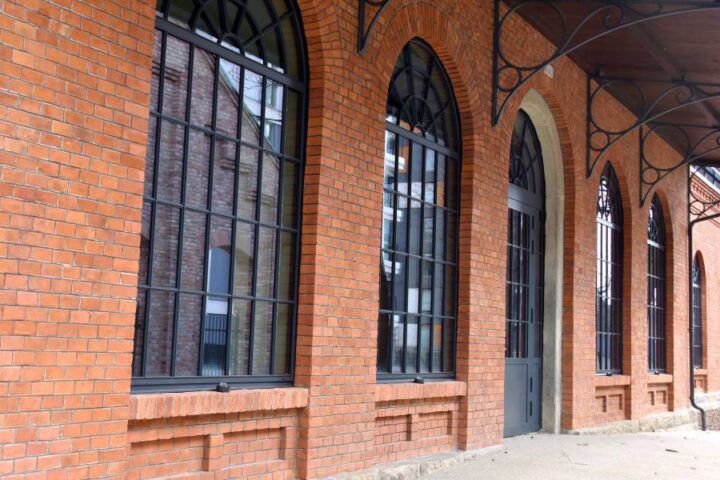Key Takeaways:
– The term “cracker” is a racial slur used against white people, particularly in the United States.
– The origins of the term are debated, with some suggesting it originated from the cracking sound of whips used by slave owners, while others believe it refers to poor white farmers.
– The use of racial slurs is harmful and perpetuates discrimination and prejudice.
– It is important to promote understanding, empathy, and respect among all racial and ethnic groups.
Introduction:
Racial slurs have long been a painful and divisive aspect of human communication. One such slur that has gained attention in recent years is the term “cracker,” which is used as a derogatory term against white people, particularly in the United States. In this article, we will explore the origins and debates surrounding this racial slur, examine its historical context, discuss its modern usage and impact, highlight the harmful effects of racial slurs, and emphasize the importance of promoting understanding and respect among all racial and ethnic groups.
Origins and Debates:
The origins of the term “cracker” are a subject of debate among scholars and historians. Some argue that it originated from the cracking sound of whips used by slave owners to control and punish enslaved African Americans. According to this theory, the term was used to refer to white individuals who were seen as complicit in the oppression and mistreatment of African Americans during the era of slavery.
On the other hand, there is another theory that suggests the term “cracker” originated from the term “cracker-barrel,” which referred to poor white farmers who would gather at country stores, often located near barrels of crackers. These farmers were often seen as uneducated and lacking sophistication, leading to the derogatory use of the term.
Historical Context:
The use of racial slurs, including the term “cracker,” has deep historical roots in the United States. During the era of slavery, racial slurs were used to dehumanize and demean enslaved African Americans, reinforcing the power dynamics of white supremacy. The use of racial slurs was a tool of oppression and control, perpetuating a system of racial hierarchy.
In the post-Civil War era, racial tensions continued to persist, and racial slurs were used to maintain social divisions and reinforce racial stereotypes. The term “cracker” was often used by African Americans as a form of resistance and empowerment, reclaiming a term that had been used against them.
Modern Usage and Impact:
In contemporary society, the term “cracker” is still used as a racial slur against white people, particularly in the United States. Its usage can be found in various contexts, including online platforms, social media, and even in everyday conversations. While some argue that the term is used as a form of retaliation or as a means of highlighting historical injustices, it is important to recognize that the use of racial slurs perpetuates discrimination and prejudice.
The Harmful Effects of Racial Slurs:
The use of racial slurs, including the term “cracker,” has significant harmful effects on individuals and communities. Racial slurs contribute to the dehumanization and marginalization of targeted groups, reinforcing stereotypes and perpetuating systemic inequalities. They create an environment of hostility and division, hindering efforts to foster understanding and unity among diverse racial and ethnic groups.
Furthermore, the use of racial slurs can have psychological and emotional impacts on individuals who are targeted. It can lead to feelings of shame, anger, and self-doubt, as well as contribute to a sense of exclusion and alienation. Racial slurs also have the potential to escalate tensions and conflicts, further deepening divisions within society.
Promoting Understanding and Respect:
In order to combat the harmful effects of racial slurs and foster a more inclusive society, it is crucial to promote understanding, empathy, and respect among all racial and ethnic groups. Education plays a vital role in challenging stereotypes and dismantling prejudice. By learning about the historical context and impact of racial slurs, individuals can develop a greater awareness of the harm caused by such language.
Additionally, open and honest dialogue is essential in addressing racial tensions and promoting understanding. Engaging in conversations about race, privilege, and discrimination can help break down barriers and foster empathy and respect. It is important to create safe spaces where individuals can share their experiences and perspectives without fear of judgment or reprisal.
Conclusion:
The term “cracker” is a racial slur used against white people, particularly in the United States. Its origins are debated, with some suggesting it originated from the cracking sound of whips used by slave owners, while others believe it refers to poor white farmers. Regardless of its origins, the use of racial slurs is harmful and perpetuates discrimination and prejudice.
In order to create a more inclusive and respectful society, it is important to promote understanding, empathy, and respect among all racial and ethnic groups. Education, dialogue, and a commitment to challenging stereotypes and dismantling prejudice are essential in combating the harmful effects of racial slurs. By working together, we can strive towards a society that values diversity and fosters unity.









